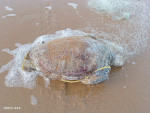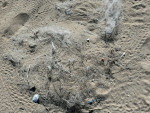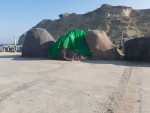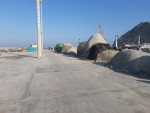The Hidden Dangers of Synthetic Fishing Nets Threaten the Health of Marine Turtles in Pakistan and Beyond
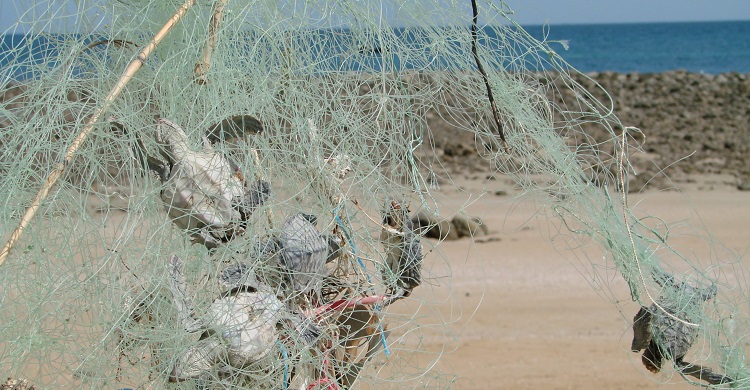
Green turtles entangled in ghost net along Balochistan coast © Moazzam Khan, WWF Pakistan
by Summaiya Abid, Sudheer Ahmed and Shoaib Abdul Razzaque – WWF-Pakistan
As Pakistan's seafood industry flourishes, synthetic fishing nets have grown, resulting in harmful effects on the marine environment, particularly for marine turtles. These nets, composed of robust materials like nylon and polypropylene, persist in the oceans for extended periods, eventually breaking into harmful microplastics. This plastic pollution compounds the broader issue of marine debris, which carries consequences that are both visual and economic, as well as ecological in nature.
The decomposition of these nets contributes to a phenomenon known as ghost fishing, where abandoned gear continues to entangle and harm marine life long after its intended use. It poses significant risks to marine turtles, as they spend most of their lives in marine habitats and are susceptible to diseases and infections resulting from entanglement.
The accumulation of polyamide, a critical component of synthetic fishing nets, obstructs the gastrointestinal tract of marine turtles, impeding their growth rates and affecting their energy allocation for crucial life processes such as maturation and reproduction. Furthermore, toxins like bisphenols and phthalates, commonly found in these nets, can transfer from the net tissue to the organs of marine organisms, leading to adverse health effects.
Polyamides, including nylon, are widely favored for fishing nets due to their strength and durability. However, concerns arise from producing polyamides using petroleum oil, a non-renewable resource that generates pollution. The manufacturing process introduces pollutants into ecosystems, and the emission of nitrous oxide during the production of adipic acid further contributes to environmental harm. Moreover, polyamides do not naturally biodegrade, remaining as persistent environmental pollutants.
Recycling methods such as pyrolysis, combustion, and incineration are recommended to address these concerns. However, given the significant environmental impact of synthetic fishing nets and the resulting harm to marine turtles, it is crucial to implement comprehensive monitoring systems and innovative conservation strategies.
Ghost fishing, resulting from the abandonment of nets, continues to capture and harm marine life. The shift from traditional nets made of natural materials to modern synthetic nets, primarily composed of nylon, has exacerbated this problem. As long-term residents of marine habitats, marine turtles are particularly vulnerable to the consequences of ghost fishing. The accumulation of polyamide within their digestive systems hampers their growth and affects their energy allocation for vital life processes. Furthermore, releasing toxins from the nets into the turtles' organs further compromises their health.
To safeguard marine turtles and mitigate the impact of fishing nets, proactive measures such as adopting sustainable fishing practices, implementing proper waste management systems, and developing biodegradable alternatives are essential. By addressing these challenges, Pakistan can significantly contribute to the conservation and well-being of marine turtles in its waters.
Impacts on marine turtles are described in more detail in this article: Improving Monitoring and Conservation Strategies in Pakistani Waters: Addressing Impacts of NonBiodegradable Fishing Gear on Marine Turtle Health
Last updated on 09 August 2023



